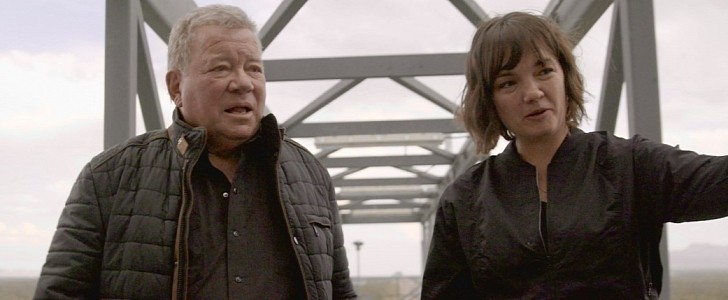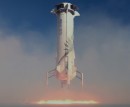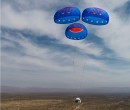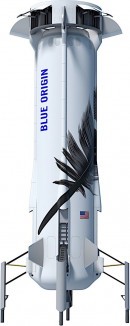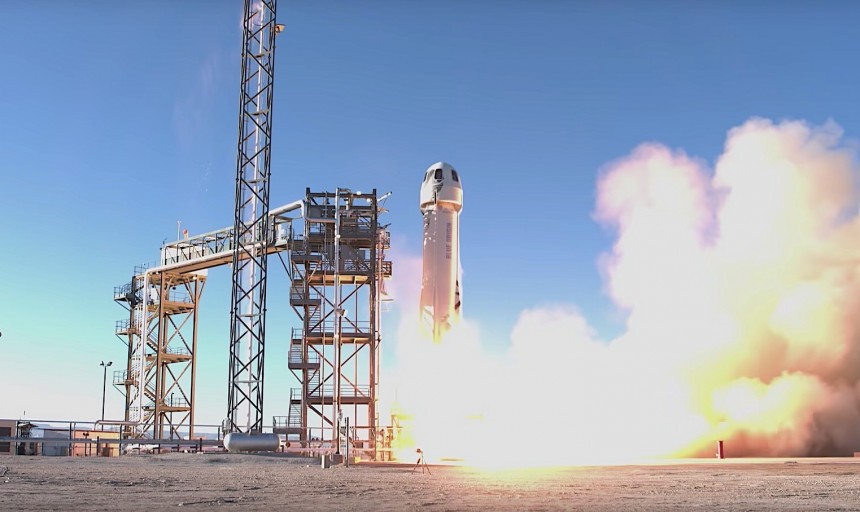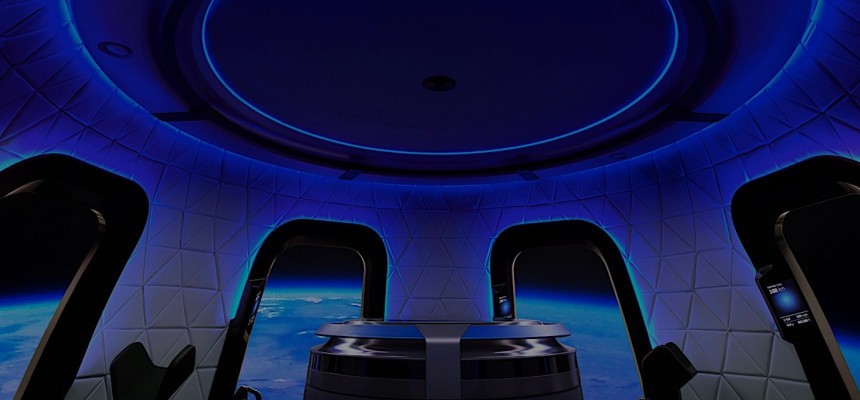In July last year, former Amazon boss Jeff Bezos was among the first group of space tourists to fly to the edge of space onboard Blue Origin’s New Shepard. A few months later, 90-year-old actor William Shatner became the oldest man to fly to space, with the second commercial flight from the company.
The connection between the two flights goes beyond the fact that they were made possible by the same company to something Jeff Bezos tried to explain ahead of his flight – and failed. Asked why space tourism was important in the context of the so-called “billionaire space race” that pitted him against Sir Richard Branson (Virgin Galactic) and Elon Musk (SpaceX), Bezos could only say something about how spending a few minutes in weightlessness at the edge of space would “help” us solve problems here on Earth.
Back then, this answer came across as a word salad at best or, at worst, a billionaire’s attempt to deflect from rumors of his overinflated ego. In reality, what Bezos was trying to say was beautifully explained by Shatner in his new book, Boldly Go: Reflections on a Life of Awe and Wonder, out on October 4, 2022.
Most media outlets are choosing to focus on some excerpts from the book, as Shatner throwing shade at Bezos’ dreams of the democratization of space exploration or how he’s somehow biting the hand that fed him by offering him a multi-million chance that broke records and afforded him an experience most of us can only dream of. Thanks to his legendary role as Captain James T. Kirk in the Star Trek franchise, Shatner could very well have paid for the flight himself, but he supposedly got to ride for free, thanks to a charity scheme devised by Bezos. When said ride is a historic milestone and you become a Guinness record holder, it's easy to twist the narrative to find hidden meanings. This is Shatner being his (in)famous bitchy self, many headlines are implying.
This is just Shatner being brutally honest, as he’s known to be – down to a fault. And his being so actually helps the argument in favor of space tourism.
He describes the feeling of panic that took over on the day of the launch and how he overcame it by telling himself he was a professional and would act like one even if it killed him. He also describes the brief but powerful experience of the actual flight and then his rush to the window once they had achieved weightlessness, whereas everyone else was doing somersaults for joy.
“When I looked in the opposite direction, into space, there was no mystery, no majestic awe to behold... all I saw was death,” he writes. “I saw a cold, dark, black emptiness. It was unlike any blackness you can see or feel on Earth. It was deep, enveloping, all-encompassing.”
Because of Hollywood movies, Shatner had arrived at the edge of space with certain expectations and preconceived notions, and they were nothing like what he was experiencing. And what he was experiencing was the most profound sadness and a sense of despair; nothing about that moment felt celebratory, cathartic, or revealing, and he felt as if he was at a funeral. His own, and mankind’s as a whole.
Later, Shatner writes, he was able to put a name to what he was feeling – and it’s the same phenomenon Bezos tried to explain and failed. It’s called the Overview Effect, a term coined by author Frank White in 1987, which refers to a cognitive shift experienced by many astronauts when viewing Earth from space. In layman's terms, it is a shift in existential perspective that usually happens in two steps: despair and sadness at the understanding of one’s own insignificance, and then hope from a better appreciation of life.
In his book, Shatner explains it this way: “In this insignificance we share, we have one gift that other species perhaps do not: we are aware – not only of our insignificance, but the grandeur around us that makes us insignificant. That allows us perhaps a chance to rededicate ourselves to our planet, to each other, to life and love all around us. If we seize that chance.”
This explains why the famous actor was so overwhelmed with emotion that he could barely put thoughts into words upon landing. It also adds weight to the arguments of space tourism advocates, Bezos included.
Back then, this answer came across as a word salad at best or, at worst, a billionaire’s attempt to deflect from rumors of his overinflated ego. In reality, what Bezos was trying to say was beautifully explained by Shatner in his new book, Boldly Go: Reflections on a Life of Awe and Wonder, out on October 4, 2022.
Most media outlets are choosing to focus on some excerpts from the book, as Shatner throwing shade at Bezos’ dreams of the democratization of space exploration or how he’s somehow biting the hand that fed him by offering him a multi-million chance that broke records and afforded him an experience most of us can only dream of. Thanks to his legendary role as Captain James T. Kirk in the Star Trek franchise, Shatner could very well have paid for the flight himself, but he supposedly got to ride for free, thanks to a charity scheme devised by Bezos. When said ride is a historic milestone and you become a Guinness record holder, it's easy to twist the narrative to find hidden meanings. This is Shatner being his (in)famous bitchy self, many headlines are implying.
He describes the feeling of panic that took over on the day of the launch and how he overcame it by telling himself he was a professional and would act like one even if it killed him. He also describes the brief but powerful experience of the actual flight and then his rush to the window once they had achieved weightlessness, whereas everyone else was doing somersaults for joy.
“When I looked in the opposite direction, into space, there was no mystery, no majestic awe to behold... all I saw was death,” he writes. “I saw a cold, dark, black emptiness. It was unlike any blackness you can see or feel on Earth. It was deep, enveloping, all-encompassing.”
Because of Hollywood movies, Shatner had arrived at the edge of space with certain expectations and preconceived notions, and they were nothing like what he was experiencing. And what he was experiencing was the most profound sadness and a sense of despair; nothing about that moment felt celebratory, cathartic, or revealing, and he felt as if he was at a funeral. His own, and mankind’s as a whole.
Later, Shatner writes, he was able to put a name to what he was feeling – and it’s the same phenomenon Bezos tried to explain and failed. It’s called the Overview Effect, a term coined by author Frank White in 1987, which refers to a cognitive shift experienced by many astronauts when viewing Earth from space. In layman's terms, it is a shift in existential perspective that usually happens in two steps: despair and sadness at the understanding of one’s own insignificance, and then hope from a better appreciation of life.
This explains why the famous actor was so overwhelmed with emotion that he could barely put thoughts into words upon landing. It also adds weight to the arguments of space tourism advocates, Bezos included.
